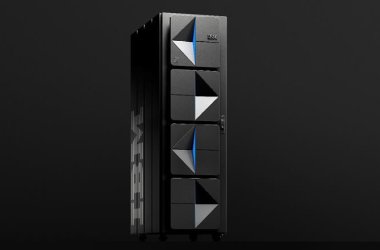 Citing unforeseen complexities and greater-than-anticipated costs, IBM and the University of Illinois’ National Center for Supercomputing Applications (NCSA) have abandoned plans to build a petaflop-speed supercomputer, the two organisations said yesterday.
Citing unforeseen complexities and greater-than-anticipated costs, IBM and the University of Illinois’ National Center for Supercomputing Applications (NCSA) have abandoned plans to build a petaflop-speed supercomputer, the two organisations said yesterday.
As of Aug. 6, IBM had terminated its four-year 2008 “Blue Waters” contract, estimated at about US$208 million, to developed a supercomputer. IBM had been expected to deliver the first version of the system within the next year or so.
“The innovative technology that IBM ultimately developed was more complex and required significantly increased financial and technical support by IBM beyond its original expectations,” the joint statement read. “NCSA and IBM worked closely on various proposals to retain IBM’s participation in the project but could not come to a mutually agreed-on plan concerning the path forward.”
IBM will return the money it has received thus far and NCSA will return the IBM equipment. IBM and NCSA have promised to work together on future petascale computing projects.
“It’s not often you hear of contract money being returned, especially with government contracts,” said Rick Doherty, director of Envisioneering Group, a technology assessment and marketing research firm.
Funded by the National Science Foundation and the University of Illinois, the Blue Waters project aimed to build a Power7 processor-based supercomputer capable of a quadrillion floating point operations per second, or a petaflop. If built, it would land near the top of the twice-yearly Top 500 list of world’s most powerful supercomputers.
NCSA planned to allow researchers to use the computer for advanced simulation, modeling and other data-crunching tasks in physics, materials science, meteorology, biology and other fields.
The abandonment of the contract was not entirely surprising to some. “IBM was putting a lot of resources into the contract,” Doherty said. IBM, which contributed software, hardware and personnel for the project, planned to recoup some of its own investment through the sales of the resulting technologies it developed for the program. Nonetheless, this approach proved too costly. “It wasn’t a profitable direction for IBM,” Doherty said.
Another challenge IBM and NCSA might have faced was a changing technological landscape. “Petascale and big data is really as wild as space travel was 40 years ago,” Doherty explained.
“The past four years has seen an explosion in techniques, for ramping up computing to petascale heights, such as the use of low-power GPUs (graphics processing units),” Doherty said. “Blue Waters may have had to be redefined to take advantage of these other trends, and the resulting changes drove up the cost of implementation past sustainable levels,” Doherty speculated.
IBM declined to offer any more information beyond the joint statement.





